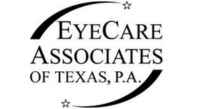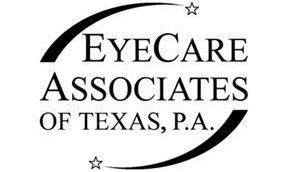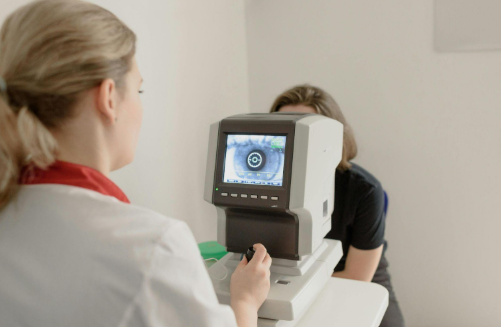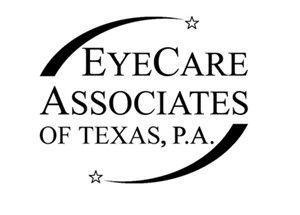Article
The Two-Way Link between Your Eyes and Sleep
As the media constantly reminds us to prioritize healthy living, we all know the importance of sleep. Today we’ll take a deep dive into why getting the recommended minimum amount of 7 hours of sleep is important to maintaining the health of your eyes. We’ll also consider the ways in which eye care habits help improve the quality of your sleep.
How Sleep Quality Affects the Health of Your Eyes
During sleep, blood flow to the eyes increases, facilitating the delivery of essential nutrients and oxygen. This promotes repair and regeneration and flushes out metabolic waste products. When we don’t get enough sleep, the restorative processes aren’t as efficient.
Let’s focus on eye diseases that have been linked to insufficient sleep:
Lack of Sleep and Dry Eyes
Dry eye syndrome occurs when the eyes do not produce enough tears or when the tears evaporate too quickly, leading to discomfort, irritation, and sometimes even vision problems.
Prolonged periods of inadequate sleep can
lead to hypertrophy of the lacrimal glands, the structures responsible for tear production. Scientists noticed that changes in lipid metabolites, secreted proteins, and free amino acid profiles were all associated with sleep deprivation. These changes were shown to have negative effects on tear composition and quality.
Furthermore, sleep deprivation has been shown to shorten tear breakup time (TBUT), which refers to the time it takes for tears to break up and evaporate from the ocular surface. A shortened TBUT is a hallmark of dry eye syndrome and can exacerbate symptoms such as burning, stinging, and blurred vision.
On top of that, inadequate sleep can induce apoptosis, or cell death, in the corneal epithelium, further compromising the integrity of the ocular surface.
Eyelid Twitches due to Not Enough Sleep
One of the leading causes of eyelid twitches is sleep deprivation. As we discussed before, during sleep, our bodies undergo essential processes for repair, restoration, and rejuvenation. Muscles, including those controlling our eyelids, rely on adequate rest to function properly. When we deprive ourselves of sleep, our muscles can become fatigued and prone to involuntary spasms, such as eyelid twitches.
Sleep deprivation can also disrupt the function of neurotransmitters like dopamine and serotonin, which play important roles in muscle control. As a result, the muscles in our eyelids may become hyperexcitable, leading to twitching or fluttering.
Sleep Deprivation and Glaucoma
Glaucoma, often referred to as the "silent thief of sight," is a progressive disease of the optic nerve, responsible for transmitting visual information from the eye to the brain. Unfortunately, its symptoms often go unnoticed until irreversible damage has occurred.
A
study conducted on over 6,700 individuals aged 40 and above in the United States uncovered a correlation between sleep problems and glaucoma. Participants were surveyed about their sleep patterns, including the amount of sleep they obtained, difficulties falling asleep, sleep disturbances, diagnosed sleep disorders like sleep apnea, use of sleep medication, and daytime sleepiness.
The findings were startling, to say the least. Participants who reported either extremely short (3 or fewer hours) or long (10 or more hours) sleep durations faced three times higher odds of experiencing vision loss compared to those maintaining a standard 7-hour sleep schedule.
Researchers hypothesize that disrupted sleep patterns may lead to alterations in intraocular pressure (IOP), a key risk factor for glaucoma. Moreover, sleep disturbances could contribute to systemic inflammation and oxidative stress, processes implicated in the pathogenesis of glaucomatous optic neuropathy.
Poor Sleeping Habits and Macular Degeneration
There may be a link between inadequate sleep and the development of macular degeneration, a leading cause of vision loss. To begin with, let’s talk about the anatomy of our eyes for a bit.
The retina is located at the back of the eye. Photoreceptor cells within the retina are responsible for converting light into electrical signals. Retinal pigment epithelial (RPE) cells support the function of photoreceptors and maintain the health of the retina.
Interestingly, both photoreceptors and RPE cells are highly energy-consuming, requiring a steady supply of nutrients and oxygen to function optimally. Any disruption in their metabolic processes can have profound effects on your vision. This is where sleep enters the equation.
There is also a connection between sleep deficiency and metabolic disorders. When we don't get enough sleep, our body's metabolic balance is thrown off-kilter. This imbalance can lead to a range of health issues, including obesity, diabetes, and cardiovascular disease. But what about the eyes?
Inadequate sleep may also impair the metabolic processes within the retina, potentially increasing the risk of developing macular degeneration. Sleep deprivation can disrupt the normal functioning of photoreceptors and RPE cells, compromising their ability to efficiently utilize energy and nutrients. Over time, this metabolic dysfunction could contribute to the degeneration of the macula, the central part of the retina responsible for detailed central vision.
How Your Eye Care Routine Affects the Quality of Your Sleep
Not only do poor sleeping habits negatively affect the health of your eyes, but your poor eyecare habits may decrease the quality of your sleep, creating a vicious cycle. That is why it is best to address both of the issues for a more holistic approach to eye care.
Blue Light and Eye Strain
Natural blue daylight signals to our brains that it is time to be awake and alert. With the advent of technology, artificial blue light from screens has become ubiquitous. Our eyes, however, haven't caught up with this rapid change.
The blue light emitted by smartphones, tablets, and computers tricks our brains into thinking it's still daytime, disrupting our natural sleep patterns. If you've ever found yourself tossing and turning late at night, unable to fall asleep, your screen time might be to blame.
The solution to this modern problem is simple: reduce exposure to blue light before bedtime. We recommend that you avoid screens altogether for at least an hour before going to sleep. This will also help you avoid digital eye strain.
Using Filters and Lenses to Your Advantage
If limiting the computer screen time is not possible for you, consider using blue light filters on your devices. These filters can help mitigate the impact of blue light on your sleep cycle, allowing your brain to ease into a restful state more effectively.
Another solution is to opt for blue light-filtering
eyeglasses or
contacts. If you opt for contacts, remember to clean your lenses thoroughly and store them in a fresh solution overnight to prevent complications.
The link between your eyes and sleep is undeniable. Luckily, our team at
Eyecare Associates of Texas, P.A. is ready to take care of your eyes no matter what troubles you might be having with them.
Contact us today!
share this
Related Articles
Related Articles





